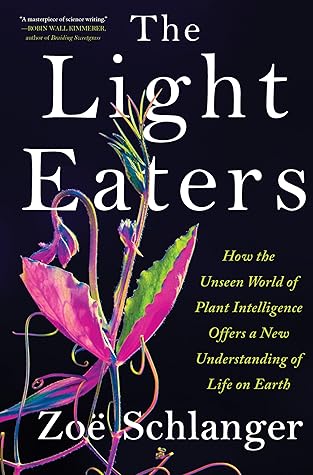In 2019 researchers at Tel Aviv University found that the beach evening primrose—a lemon-yellow teacup-shaped flower that grows low to the ground—would increase the sweetness of its nectar within three minutes of being exposed to an audio recording of honeybee flight. The primrose would completely ignore sounds that fell outside of the frequency of the hum of bee wings. The team, led by evolutionary biologist Lilach Hadany, theorized that the sweeter nectar—it had a higher sugar content than flowers not exposed to bee sounds—would better entice pollinators, and increase the chance for
...more
Welcome back. Just a moment while we sign you in to your Goodreads account.


